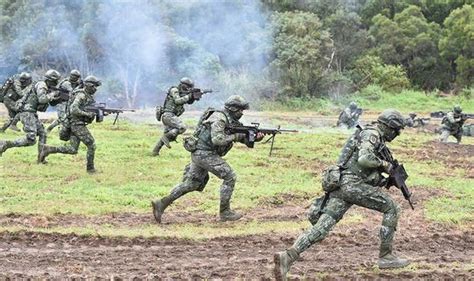By Jeffrey Rodack
Small units of Taiwan’s military ground forces have been trained by a U.S. special operations unit and a contingent of Marines, who have been secretly operating in that country, The Wall Street Journal is reporting.
Some two dozen members of U.S. special-operations and support troops have been conducting the training in an effort to strengthen Taiwan’s defenses in light of concerns about potential aggression by China.
Officials tell the paper that American forces have been conducting the training for at least a year.
White House and Pentagon officials would not comment on the U.S. deployment.
China’s Foreign Ministry urged the U.S. to cease military aid to Taiwan.
“China will take all necessary steps to protect its sovereignty and territorial integrity,” it said in a statement.
President Joe Biden announced Tuesday he and Chinese leader Xi Jinping agreed to abide by the Taiwan agreement and reduce tensions in the region following provocative moves by the Chinese.
“I’ve spoken with Xi about Taiwan,” Biden told reporters, The Hill reported. We agree we will abide by the Taiwan agreement. That’s where we are, and I made it clear that I don’t think he should be doing anything other than abiding by the agreement.”
Known as the “Taiwan Relations Act,” the 1979 law passed by Congress allows the island nation off the Chinese mainland to govern itself separately from the communist Chinese regime and maintain a trade relationship with the U.S. without being officially recognized as a separate country.
But recently, China has made some provocative moves against Taiwan, amassing troops on the shore facing the island and intruding into Taiwan’s airspace.
The Journal noted that U.S. officials have expressed concerns over nearly 150 flights by Chinese military aircraft near Taiwan in the past week.
Matt Pottinger, a distinguished visiting fellow at Stanford University’s Hoover Institution who served as a deputy national security adviser during the Trump administration said: “Taiwan badly neglected its national defense for the first 15 years or so of this century, buying too much expensive equipment that will get destroyed in the first hours of a conflict, and too little in the way of cheaper but lethal systems — antiship missiles, smart sea mines and well-trained reserve and auxiliary forces — that could seriously complicate Beijing’s war plans.”
And Taiwan’s defense minister, Chiu Kuo-cheng, said China would be able to mount a full-scale attack on his nation with minimal losses by 2025.

